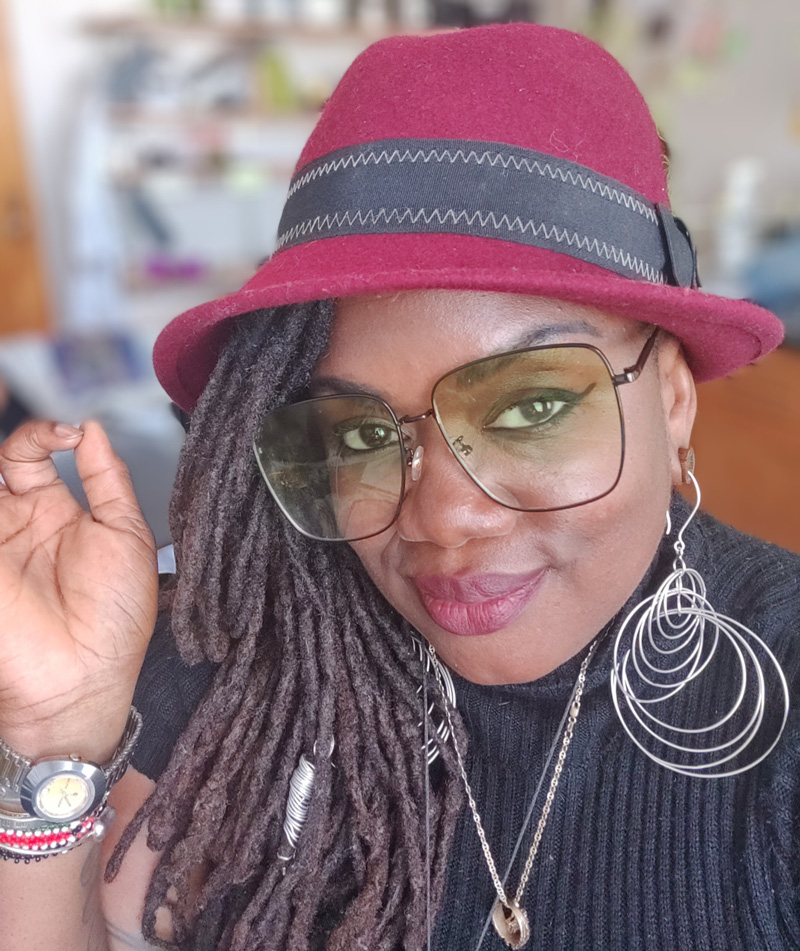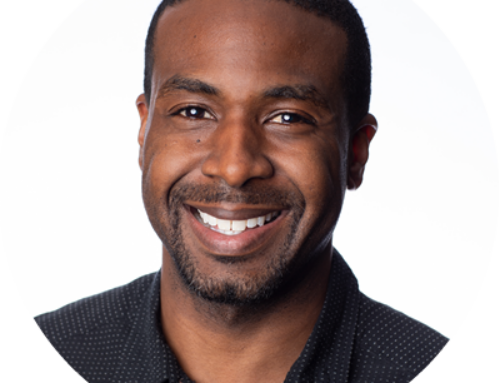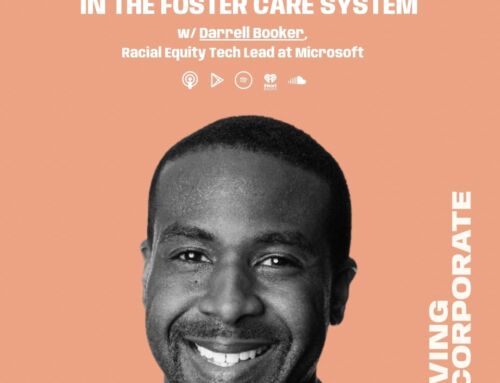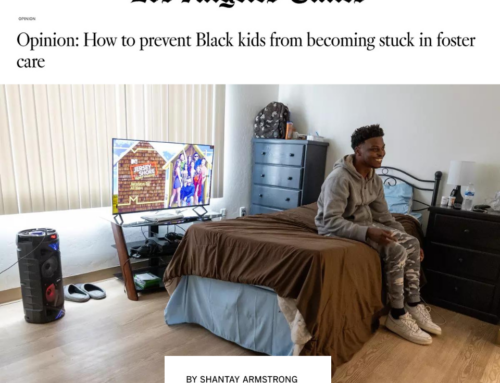
Advocating for Equity in Public Health Through Lived Experience
By Sunshine Best
Guest Author
Less than 1% of foster care alumni earn a Master’s Degree. Only a fraction of this 1% earn a Doctorate. As I write this, I am 15 months away from completing my deliverables for a Doctorate in Public Health—an accomplishment rarely attained by Black foster care alumni, for various reasons.
Described as fearless, creative, a philomath, ambivert, and more, my journey has been a rollercoaster of experiences, shaping me into a mindful work in progress. Recounting my life in the foster care system from age three to seventeen involves numerous moves, abuses, heartaches, and hard lessons learned—a story that could fill more words than I can spare. Let’s save it for a future Ted Talk (wink). Instead, let’s focus on how I got here, lessons learned, and goals for bringing more foster youth alumni into Public Health leadership to impact research and policy change.
My path to my Public Health degree began after a decade-long IT career in Toronto, Canada. While studying part-time as a chef, I explored Sustainable Urban Agriculture in Chicago before embarking on a two-year globe-trotting odyssey as a personal chef. Told by many from an early age and throughout my adulthood that my life wouldn’t warrant an advanced degree, I proceeded with my plan. I continued to pursue all interests. I studied plant use beyond food. As an Ethnobotanist, I focused on Health & Wellness in New Orleans, Louisiana, specializing in Traditional Ecological Knowledge and Indigenous Sciences. A CDC scholarship funded my Master’s degree in Environmental Health, specializing in Toxicology and Occupational Health Exposures. This is where I learned my years of cumulative volunteer work, technical innovations, and laboratory work which fell under the discipline of ‘Translational Science’.
Recognizing the academic disparities faced by foster care alumni, especially in pursuing advanced degrees, I chose transparency when discussing my childhood in the system. Brief periods of homelessness, food scarcity, and financial struggles were part of my reality. Juggling three part-time jobs while attending classes full-time during my undergraduate years left me with minimal sleep of 2-3 hours per night for the next four years, potentially contributing to chronic health issues that I live with to this day. Student loans covered only so much, and with a stagnant minimum wage in the state of Louisiana since 2009 didn’t help the struggle, so financial challenges persist.
Living on a tight budget makes networking challenging, emphasizing the lack of relatability to peers, especially as a Black woman in a predominantly white, wealthy, private school. Foster care alumni seldom experience homophily (a sense of community among peers due to common traits) in graduate school. It was here, I came to learn, I had more in common with the populations that were studied than those performing the research. Despite friendships and therapy, a sense of loneliness persisted, particularly during holidays when others have family support. I needed people.
My childhood experiences, therapy, and deep friendships have shaped my worldview and values, fueling my determination to improve public health by leveraging unique lived experiences to drive conversation and change—making me a natural advocate and leader. I am rare in Public Health higher education, and sometimes made to feel stigmatized and unwelcome. This is why I am proud to be a task force member with EMBRACE, a space where I can apply my whole self to serve.
To bridge public health and foster care reform, I emphasize my experience with intersectionality, advocating for recognition of compounding impacts on mental health. I work with EMBRACE, a Kidsave initiative, applying my project management, strategy skills, and legal epidemiology to improve the lives of Black foster youth and families. The cumulative observations from my upbringing, travels, career, and academic research inform my unique insights applied through this work.
As children and youth engaged with the child welfare system, we are dealing with the hand we are dealt. Despite the hardships, many of us are success stories, deserving to be celebrated in the media. This is a short-term goal I aim to achieve through my contributions to the EMBRACE project, showcasing a different side to our story through research and sharing our experiences, demonstrating we are worth the investment of time, love, and attention.
In spite of my challenging past, I know I deserve to live well and thrive. I used to wonder if I was just born to be everyone’s pin cushion for abuse. I’ve grown to see otherwise. I need both foster youth and Black potential parents/Black mentors to feel the same, to know our value, and that we deserve good things. Black families can offer an extra layer of homophily and an intangible value that enriches human life that community and culture can bring.
I’ve learned foster youth have many strengths and character traits unique to us because of our lived experience that others do not have. We just need to discover them. Being surrounded by people who offer support, love, and stability can help these traits flourish. This is just more proof that each life is not a waste, and no kindness is ever wasted.
My life has been an example. My decisions, risks, and sacrifices have paid off. Despite unfavorable success statistics, my journey will continue to uplift others while climbing. I aim to defy expectations and bring more foster care alumni into spaces they thought unattainable.
Incorporating the lived experience of graduate students with a foster care background into public health initiatives is crucial for creating responsive, inclusive programs. Training new leaders out of Foster Care Alumni is one way of contributing to positive health outcomes through informed and empathetic leadership.
However, even with the best intentions of the graduate student, best grade point averages, even a full ride scholarship, Black foster youth and alumni need Black adoptive families and mentorship for support to help get them there. I can attest first hand to the support I needed and didn’t have, which was soul-crushing. Life long support should last a lifetime, because people need people.
#InvestInYouthResearch #Mentorship #Embrace #BlackFosterYouth
About Sunshine
Sunshine is a Doctoral candidate (DrPH ‘25) and an award-winning professional with a strong interest in addressing the most challenging health equity needs in our communities. She’s recognized as a fiercely driven, entrepreneurial-minded professional who effortlessly wears more hats than most could imagine: a scientific researcher, activist, ethnobotanist, innovator, and foster care alum.
Sunshine’s long-term goals include envisioning public-private support mechanisms for graduate students facing financial burdens, establishing a nationwide fraternity/sorority for BIPOC foster care alumni, and changes in academia’s recruitment and engagement with foster care alumni.




